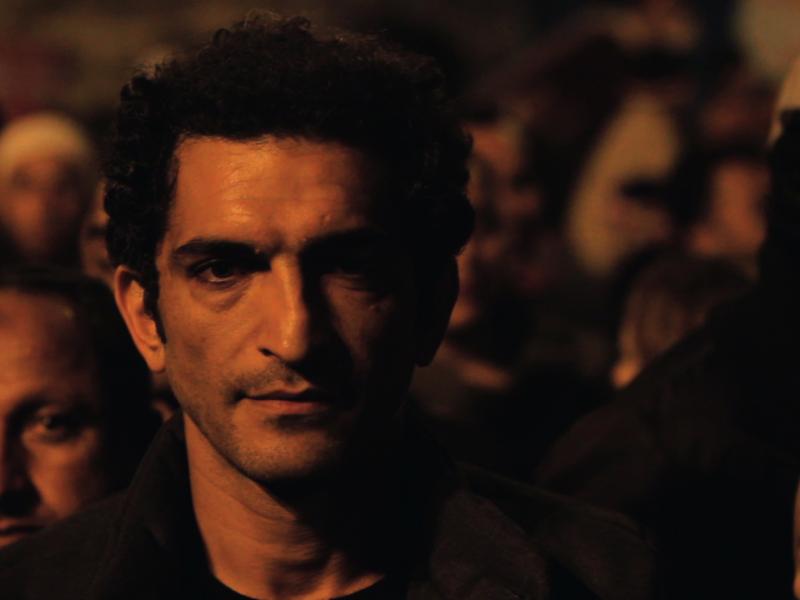A newly launched news satellite network is sparking controversy in Egypt, due to its alleged Muslim Brotherhood bias.
The Qatari-funded channel, Al-Araby Al-Jadeed, was launched from London on Sunday, a highly symbolic date as it coincided with the fourth anniversary of the 25 January Revolution in Egypt.
Advertisements for the new channel appeared on Cairo streets and major highways including the 26 July corridor and the Ring Road. It sparked media controversy and demands for the billboards to be removed.
According to statements made by the Giza deputy governor in a Tuesday phone interview on Egyptian satellite network CBC, the governorate was “not aware” of the advertisements before they were placed on the streets.
Giza Governor Ali Abdel Rahman stated in a phone interview on another network, Sada Al-Balad, that the billboards would be removed “for not paying the fees”.
A Qatari-owned private holding company began funding a multi-platform international media endeavour in March 2014. The project included a website called Al-Araby Al-Jadeed (The New Arab), and a daily Arabic newspaper bearing the same name began to publish later in September, according to a BBC report.
The Al-Araby Television network, of which Al-Araby Al-Jadeed channel was the first to launch, addresses audiences in the Arab world, particularly the youth. It will broadcast news as well as political, social, cultural, and entertainment programmes, according to the network’s statement.
In a published interview with the network’s CEO, Islam Lotfy, described it as “attempting to deliver independent content attributed to what we may call the peoples’ media as opposed to state media or other media channels advocating religious extremism”.
Regarding the choice of the launch date, Lotfy stated that the channel was not ready before then, and that “25 January marks a turning point in the modern history of the Arab world”. He added that during the 25 January Revolution, the people came out aware of the idea of the “fall of the regime”, while the revolution in Tunisia was “completely spontaneous”.
Lotfy states that there is only one programme dedicated to Egyptian affairs, and that it is mainly an “Arab channel”, despite it being first launched by a group of Egyptians.
Initially, Islam Lotfy along with Ahmed Zein, the current director of Al-Araby Al-Jadeed channel, attempted to launch a channel from Egypt but it was shut down only a few days later. The idea was suspended temporarily until it was agreed to launch the channel in London.
Formerly a member of the Muslim Brotherhood, Islam Lotfy was expelled from the group after helping found the Egyptian Current party which participated in the 2011 parliamentary elections. Many of the party’s leading members formerly belonged to the Muslim Brotherhood’s youth wing and the 6 April Youth Movement, along with several independent young activists involved in the January 25 Revolution.
However, Lofty contends in a video posted on his YouTube channel that his expulsion was not due to any “disputes in the ideology and beliefs of the Brotherhood”. Instead, it was due to “disagreement over the method of administering the transitional period and envisioning Egypt’s upcoming future”.
The channel’s director, Ahmed Zein, was the first to head Al Jazeera Mubasher Misr channel, the Qatari news network’s live streaming channel focused on Egypt but airing from Qatari capital Doha.
After a series of disputes regarding the permits for the Cairo office, Al Jazeera announced on 22 December the channel’s closure. Al Jazeera confirmed in a statement that airing from Egypt will stop until the required permissions are obtained from Egyptian Authorities.
The Egyptian and Qatari governments were at loggerheads for over a year following the ousting of Islamist president Mohamed Morsi in July 2013. Cairo accused Doha of supporting the Muslim Brotherhood and sowing instability within the country. Egypt and Qatar only recently reconciled, after a Saudi brokered negotiation.
The Egyptian media continue to allege the new channel represents a Qatari attempt to circumvent its reconciliation with Egypt by launching a substitute for Al Jazeera Mubasher Misr, through which it would support the outlawed Muslim Brotherhood.
The Qatari news conglomerate Al Jazeera has similarly been accused of pro-Brotherhood bias.


